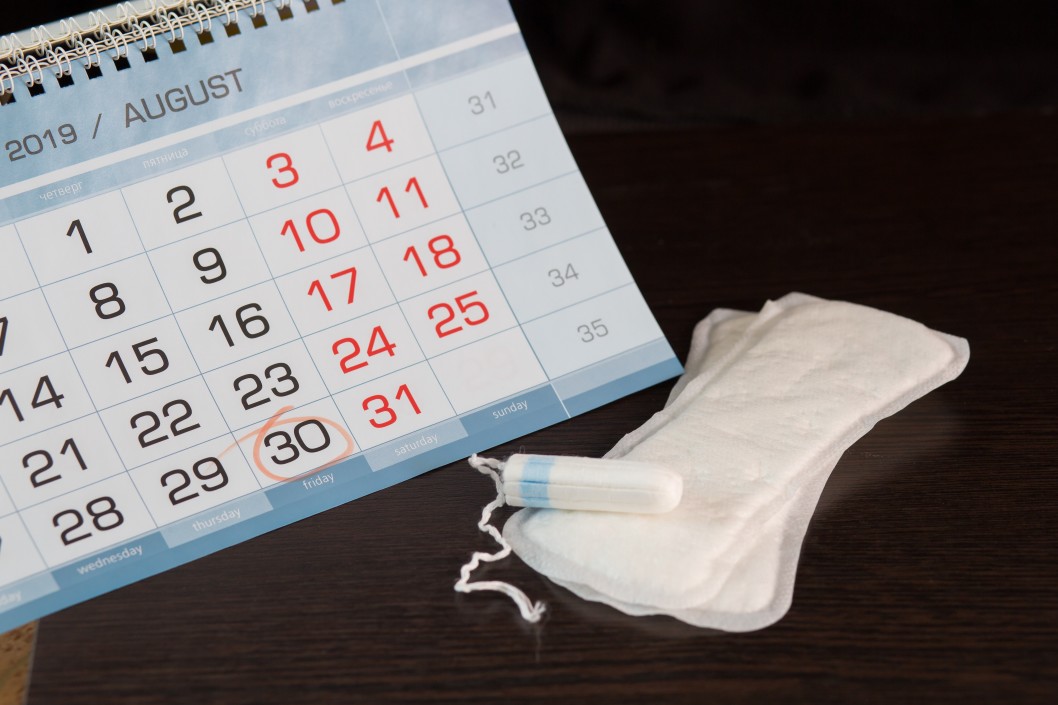Period Leave: Natasha Ramarathnam Looks Back At Workplaces In The 90s

Note from the Editor: Ungender Insights will now feature the occasional narrative of experience. This series is a new addition to the blog. We believe that it is important to feature authentic voices on the workplace experience of people so as to give impetus to the idea of better workplaces for all. We hope you enjoy these pieces.
Written By: Natasha Ramarathnam
Originally posted on twitter here, edited and reproduced with permission.
When I entered the formal workforce in the mid 1990s, it was a male territory. Yes, there were women in middle and senior management, but the physical and mental spaces were male. You were invariably the only woman in the team, and to be accepted you had to be as male as the men. Yes, you wore the sarees or salwar kurtas (with dupatta) prescribed in dress code, but in everything else, you had to be like the men.
Cigarette breaks in the landing were often the time when outrageous ideas were thrown about and trashed out like they couldn’t be in a formal meeting room. Whether you smoked or not, you took those breaks because you didn’t want to miss out.
That often meant looking away when the latest “chick” was discussed, or when the secretaries were rated on their sexiness. Far from opposing it, you secretly took pride in the fact that you were accepted as “yourself” and not as a representative of your gender.
Looking back, it was so wrong, but that’s how it was.
For us, the choice was simple. Man up, or risk not being taken seriously. Period leave? Forget it. Even if you suffered a miscarriage, you wrote some flimsy excuse in the leave application, and returned to office with a wry smile in three days.
[Yes, I did. Now not proud of it, but I did.]
Almost all of us worked till the last day of our pregnancy; we just didn’t know any other way.
Traveling threw up its own challenges.
Most of the factories where spent days doing due diligence for project appraisals employed only men. You got used to being started at. You learnt to keep your pinks and purples at home, and wear only black and white- all the better to become invisible in. What you could do nothing about was the absence of loos.
The time when I got my periods in a factory near Pitampura. I had to ask my colleague to stand guard outside the washroom, so I could slip a pad on. That shy associate who probably didn’t know women bleed had no choice but to do it.
But I didn’t have a choice either. I was certainly not brave enough to attempt to use the washroom that the women sweeping the driveway outside the factory used. It was the gent’s washroom, or nothing.
While designing the factory, nobody thought to put in a ladies washroom. Things haven’t changed much. Women still struggle to find washrooms when they are on the road. While traveling with me, my team jokes, “Natasha Maam only wants coffee”. Little do they know that it is not undrinkable coffee I seek, but a washroom.
While driving down from Bangalore to Mysore, I don’t drink any water till I am halfway there, because I know that the place where we will stop for breakfast makes awesome madur vada, but doesn’t have a ladies washroom.
Women who need to travel in the hinterlands just learn to drink less water. I always carry a 500 ml water bottle with me, which I fill up whenever I find a restaurant with a washroom. Input-output balance; I know that my bladder can take 500 ml, so that is how much I allow myself after each empty bladder.
In summer, we often remain under hydrated, and suffer migraines at night. Women who are out on the field all day have it much worse. A majority of them suffer from Urinary Tract Infections (UTI) because they don’t have access to washrooms so learn to hold their bladder for 8 to 10 hours at a time.
When I found out about the prevalence of UTI among my female staff, I instructed my (male) managers to tell the women that they should ask the families in the community if they could use their personal washrooms. That instruction, however was never passed on to the women, because “nobody complained to me.”
Of course nobody would complain. Women are used to pretending their bodies don’t have needs. The issue got sorted out only after I raised it in a mixed gender group and set clear deadlines by which the instructions would be passed down the line.
I still remember the time when I went straight to a dinner engagement from an outstation visit. I met a senior IAS officer there, and when she heard I had driven down from Guntur, we spend the next few minutes lamenting the lack of proper washrooms on that highway. The irony of two senior professionals having to discuss washrooms wasn’t lost on either of us. The reality is that even today, workspaces are designed for men. The physical and emotional needs of women are not taken into consideration, much less those of transgender persons or persons with disabilities.
We need to first acknowledge the fundamental design flaw in workspace attitudes. Before we start to change it. Though period leave is an important component in making workspaces more inclusive, it is only one part. More than anything else, we need to recognize that period leave is not a privilege; it is necessary to retain women in the workplace.
The larger issue is to normalize conversations around different needs. It is only after we start talking about challenges that women face that we can start addressing those issues. This is a conversation that has to be led by women. Women who themselves struggled to make a mark in their profession, but who now want to leave behind a legacy of a more equitable and inclusive workspace.
Though it is tempting to do so, women cannot hide behind “but if we demand special privileges, people will stop hiring women”. Our struggles from 25 years back cannot set the discourse for today. We who have fought the system, beaten the system, and are now in a position to change the system, must step up.
Period leave is not just about ten extra holidays in a year. Women who are physically unable to come to work will, if necessary, take sick leave or unpaid leave. However, by granting period leave, an organization allows a woman the right to exist with dignity. She doesn’t have to feel guilty about taking time off every month, and neither does she have to worry about having her professionalism questioned. The discussion around period leave should lead to discussions that make the workplace more inclusive. It is not enough to hire diversity. Diverse needs arising out of diverse people should be acknowledged.
The most heartening thing about the debate is that men have shown that they are willing to listen. Most of them were not even aware of how inequitable our workspaces are, and having now understood it, they are willing to drive conversations on the changes that can be implemented. It is time we women broke the silence and started speaking about the unique challenges that we face in the workplace. We do owe it to the next generation to make their life a little less challenging.
Also #MustRead
Five Indian Companies That Give Period Leave To Employees
About the Author: Mother, dog parent, tree hugger, people watcher, coffee drinker. Natasha works in the development sector, and currently calls Hyderabad home.
Ungender Insights is the product of our learning from advisory work at Ungender. Our team specializes in advising workplaces on workplace diversity and inclusion. Write to us at contact@ungender.in to understand how we can partner with your organization to build a more inclusive workplace.
Read our insights about diversity, legal updates and industry knowledge on workplace inclusion at Ungender Insights. Visit our Blog.
Sign up to stay up-to-date with our free e-mail newsletter.
The above insights are a product of our learning from our advisory work at Ungender. Our Team specialises in advising workplaces on gender centric laws.
or email us at contact@ungender.in




